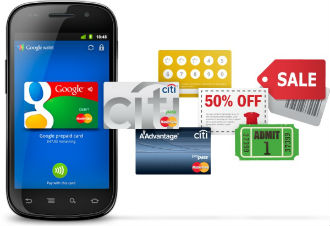 Sony, Microsoft and Nintendo have rolled out their latest generation consoles and although they feature very impressive hardware, some analysts are already saying that they could be the last generation of big consoles on proprietary operating systems.
Sony, Microsoft and Nintendo have rolled out their latest generation consoles and although they feature very impressive hardware, some analysts are already saying that they could be the last generation of big consoles on proprietary operating systems.
Sales of mobile consoles have also taken a hit, as more and more consumers traded them in for smartphones and tablets. It’s nothing new, we saw the same trend with personal media players and compact cameras.
However, if mobiles are indeed cannibalising consoles, isn’t it time for smartphone makers to capitalize on the trend? Google seems to think so. Late Thursday several reputable outlets reported that Google is indeed working on some sort of Android console. It is apparently loosely based on the Nexus Q, a streaming device which flopped before it hit the market. Google is starting to take hardware quite seriously. A couple of years ago it only sold a single product, the developer friendly Nexus smartphone series. However, over the past 12 months Google also introduced two Nexus tablets and Google Glass. Let’s not forget about the company’s acquisition of Motorola Mobility, either.
On the other hand, it must be said that Google’s idea is anything but original. Kickstarter sensation Ouya is about to hit the market, after a couple of delays. Based on Nvidia’s old Tegra 3 chip, the Ouya was envisioned as a homebrew Android console with a $99 price tag. The first reviews weren’t impressive, but then again this is hardly surprising given the nature of the project.
Nvidia also entered the fray with Project Shield, a handheld console based on the much more powerful Tegra 4 SoC. It’s a bit bigger than Sony’s or Nintendo’s handhelds, but it also has a unique trick up its sleeve. It can be used to stream PC games, but the feature is still not ready for prime time. It has a 720p screen and a $299 price tag, but yesterday Nvidia announced that Shield would be delayed by a few weeks due to a mechanical fault.
The delays illustrate that Android consoles are bound to face a number of teething problems. Android still lacks truly compelling games designed to attract hardcore gamers. Most Android games are made with the casual gamer in mind, and with relatively poor hardware. However, hardware shouldn’t be an issue in the long run. Mobile chips are evolving at a much faster pace than their PC counterparts. New SoC designs like the Snapdragon 800 and Tegra 4 feature vastly improved GPUs and they are capable of delivering a pleasant gaming experience at 720p and even 1080p, with some caveats. The level of detail still can’t come close to PC or console games, regardless of what spinners would have us believe. Although a 1080p game could look lovely on a 4.8-inch smartphone, it wouldn’t be much to look at on a 40- to 50-inch television.
Software might be a tougher nut to crack. Piracy is rampant on Android and even if that wasn’t a problem most users prefer casual games on the go, rather than big budget games that can generate plenty of revenue to pay for the eye candy needed for 1080p televisions. Attracting big developers won’t be easy, but someone has to make the first step and in this case it seems as if Nvidia has the best chance of getting some devs on board, as it is trying to get the best of both worlds, with PC streaming on a portable Android console with pretty good hardware. To make Android consoles truly attractive, developers must start coming up with titles specifically designed to make good use of physical controllers and fast chips used in such devices. The one size fits all approach, used to develop tablet and smartphone games, just won’t work. With next to no Android consoles on the market, this won’t happen anytime soon.
If Android consoles do take off, and we believe they will, sooner or later, the gaming market could be in for a frugal surprise. An average high-budget Xbox game costs about $60, yet the Ouya is priced at $99 and the Shield should sell for $299. This is a massive difference that won’t go unnoticed in emerging markets, or in the West for that matter. The Play Store could also democratize the market, allowing small outfits with good ideas to publish their games with ease, ending up with a runaway hit. Such success stories are not uncommon in the iOS and Android universe, as the market is not dominated by huge developers with endless budgets. The openness also means other software can be developed and put to good use, transforming Android consoles into proper home entertainment centres, capable of handling rudimentary computing, thus putting even more pressure on the embattled PC market.
All this leaves us with a very interesting emerging market, with plenty of pitfalls and opportunities for all involved. As tablets and smartphones mature, hardware makers will start exploring smaller niches. Samsung already has Android cameras and a strange phone-camera hybrid with a zoom lens. Smaller outfits are building dirt cheap Android sticks and some are experimenting with other form factors, like gaming tablets.
Although the first generation of Android consoles doesn’t seem too impressive, the market will be anything but boring over the next few years.















